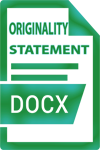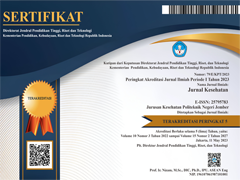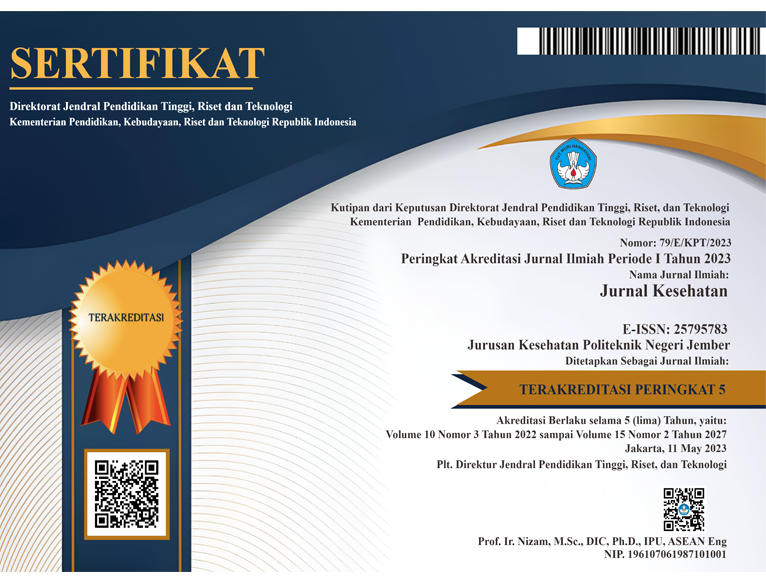Pengaruh Informasi Hoax terhadap Kesediaan Masyarakat Kelurahan Gayam dalam Menerima Vaksinasi Covid-19
DOI:
10.25047/j-kes.v11i2.417Downloads
Abstract
In dealing with the Covid-19 pandemic, the Global Alliance for Vaccine (GAVI) was working with its member countries to support the rapid handling of the virus. The Alliance of GAVI member countries was also leading the global effort for equitable access to a Covid-19 vaccine. In addition to the problem of the number of vaccines, another problem in the vaccination program was the willingness to be vaccinated and the public's trust in vaccines. The vaccination coverage rates in Sukoharjo Regency were very low and far from the target of 70%. Currently, the realization of vaccination has only reached 13.95% of the total vaccine target. Lack of proper information about vaccines can be the cause of the lack of public understanding of the importance of vaccination. This study aimed to determine the effect of hoax information on the willingness of the Gayam Village community to receive the Covid-19 vaccination. This research was a quantitative research with a cross-sectional approach. The dependent variable in this study was the public's willingness to receive the vaccine, while the independent variable was hoax information. The research sample was the Gayam Village community, which was taken by quota sampling technique with a total of 100 respondents. The results of the study showed that 98% of respondents wanted to receive Covid-19 vaccinations, even though 49% of them were often exposed to Covid-19 hoax information. The results of statistical tests showed that the r result was 0.167 and the p-value was 0.97. These results indicate that there was no significant effect between exposure to hoax information and respondents' willingness to receive Covid-19 vaccinations. This was supported by the value of r, which was close to 0 at 0.167, indicating that the two variables had a weak correlation.
License
Copyright (c) 2023 Prita Devy Igiany, Julia Pertiwi

This work is licensed under a Creative Commons Attribution-ShareAlike 4.0 International License.
Authors who publish in this journal agree to the following terms:
1. Copyright belongs to the medical journal as a publication
2. The author retains copyright and grants the journal rights to the first publication carried out simultaneously under a Creative Commons Attribution License which allows others to share the work with an acknowledgment of the author's work and initial publication in this journal.
3. Authors may enter into separate additional contractual arrangements for the non-exclusive distribution of the work (eg sending it to an institutional repository or publishing it in a book) with acknowledgment of initial publication in this journal.
4. Authors are permitted and encouraged to post work online (eg in institutional repositories or on their websites) before and during the submission process, as before and larger citations of published work (see Effects of Open Access).
Selengkapnya tentang teks sumber ini














